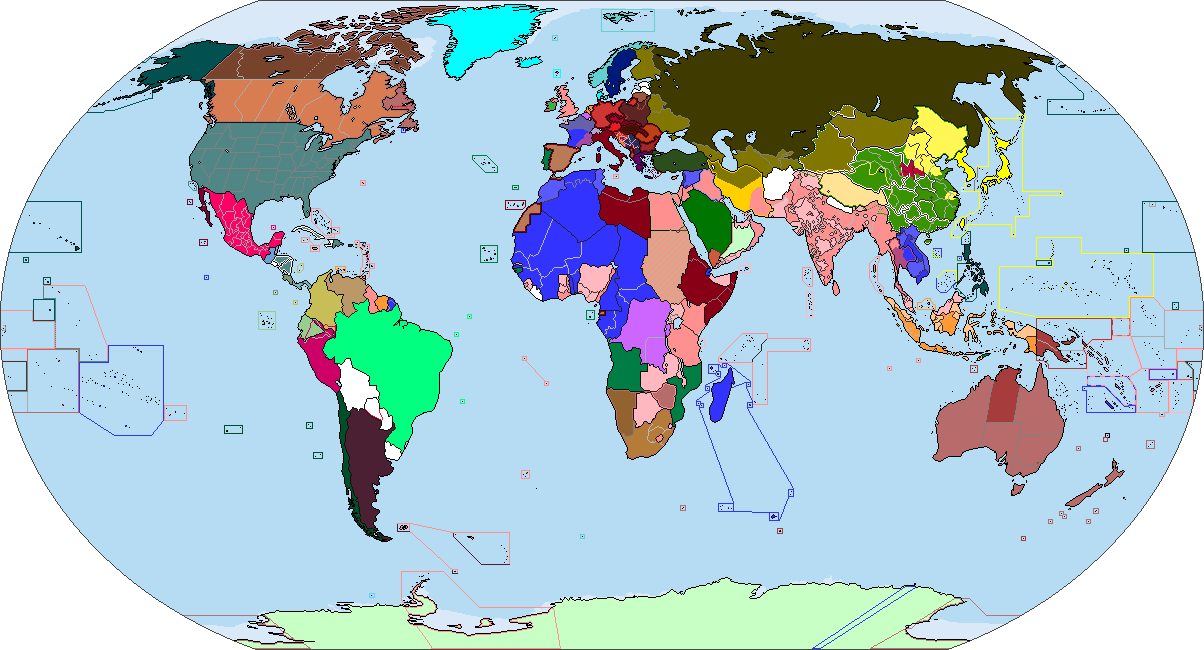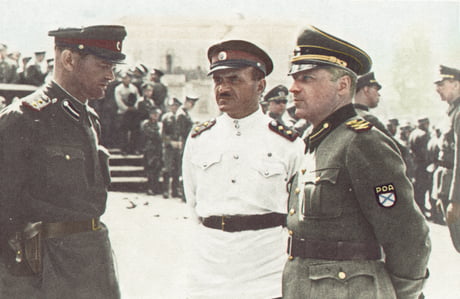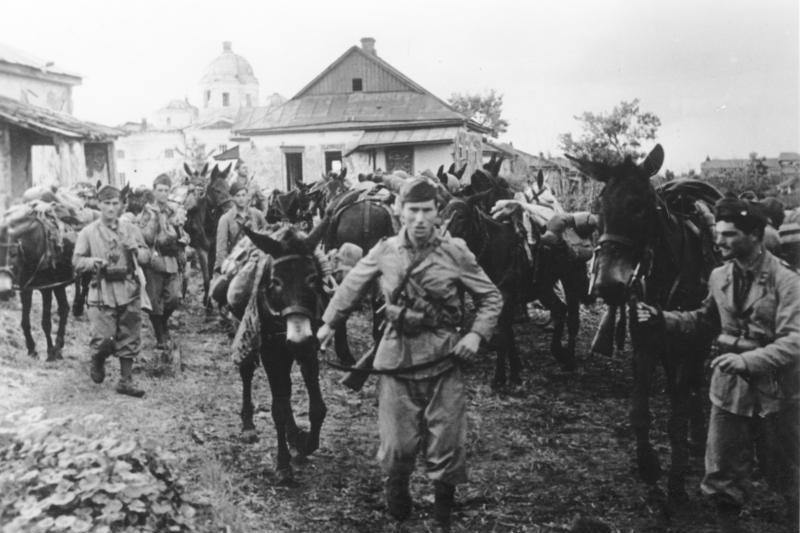Chapter Twenty-Seven: Riots and Rebellions during the French Coup and Civil War
Chapter Twenty-Seven: Riots and Rebellions during the French Coup and Civil War

One of the ideas of the PRIINT and CNSPR of how to deal with the reactionary powers that were France and Russia in mainland Europe was to use their internal problems and struggles to initiate revolutions inside of them. In France the National Syndicalist Movement was quit strong and popular, even if it was oppressed by the French government. The Reactionary Forces have lost dominance in the Mediterranean Sea with the fall of Spain, so that France suddenly hat three National Syndicalist PRIINT and CNSPR bordering it feeling surrounded on all sides. French Socialist Prime Minister André Léon Blum therefore was exchanged by Radical-Socialist (center-left) Édouard Daladier who expanded the French welfare state, hoping that would please and calm down the working masses. At the same time the French tried to help Spanish Monarchist in exile who had fled to their land to return to Spain and restart the civil war with French aid. Great Britain meanwhile tells the French that they don't want to escalate the conflict as they are not yet ready and wish to preserve a somewhat balance of power between the PRINNT, CNSPR and French-Russia on the continent. Because of this Daladier refused to intervene now as well, especially after many french politicians had declared they would not support such a move if Britain wasn't standing behind it as well. This was the first split that could be seen in the Front of the Reactionary Powers. As a result of this diplomatic chaos, Paul Reynaud becomes the new French Prime Minister of a center-right Democratic Republican Alliance Emergency Coalition. Opposing the growing PRIINT and CNSPR powers in Europe surrounding France now, Prime Minister Reynaud opposed any new appeasement. Some however saw this as still to little to late and the Generals Philippe Pétain, Maxime Weygand and Charles Huntziger alongside some right-wing French parties prepare for a reactionary coup in France itself, while the PRIINT and CNSPR prepare for a National Syndicalist one. While their military coup takes over most of norther France and the main cities, part of the democratic French government manage to flee to Bordeaux and Toulouse, where the French navy under François Darlan remain loyal to them.
Meanwhile the PRIINT and CNSPR coup fires only a week later, rushed to not loose their opportunity, but is only able to secure the southeast around Marseilles and Montpelier near the Italian and Spanish border regions along the southern coastline. Quickly Adolf Hitler urges me, Benito Mussolini to directly intervene to bring down France now that the time is right and orders his National Syndicalist German Army to enter Elsaß-Lothringen (Alsace-Lorraine) in a attempt to secure German interests in this former German province. I however feared that this would lead to a escalating Europe War directly including Britain and France. Meanwhile the British send the British Expeditionary Force to aid the democratic French Republic in Bordeaux, while at the same time not completely breaking their diplomatic support with the new northern regime of Pétain in hopes of reuniting them, or using him against the PRIINT and CNSPR forces now that the time of Appeasement seamed over. Quickly the Italians, Germans and Spanish sended forces for the National Syndicalist government in Marseilles, while the reactionary power of Russian sends the majority of their forces to the government pf Philippe Pétain clearly favoring this more right-wing, militarist government similar to their own over that of the in their eyes do liberal, democratic and socialist one in Bordeaux. This changes also made the Polish nervous who were by now used as a buffer between Germany and Russia, similarly to how the Belgians formed a buffer between Germany and France. But with France in Civil War now the French are unlikely to intervene anymore should the Germans or Russians (meaning the White Russian and Ukraine Protectorates of Russia) attack to take the polish territories they claimed for themselves. While Britain now heavily mistrusted the Russians because of who they supported during the French Coup and Civil War. Now that the French Civil War and the fighting in the Balkans seamed to turn into a European War our only chance was to continue the British-French split with Russia over their decision and support of the Spanish Civil War.
- Benito Mussolini, 13 July 1940


One of the ideas of the PRIINT and CNSPR of how to deal with the reactionary powers that were France and Russia in mainland Europe was to use their internal problems and struggles to initiate revolutions inside of them. In France the National Syndicalist Movement was quit strong and popular, even if it was oppressed by the French government. The Reactionary Forces have lost dominance in the Mediterranean Sea with the fall of Spain, so that France suddenly hat three National Syndicalist PRIINT and CNSPR bordering it feeling surrounded on all sides. French Socialist Prime Minister André Léon Blum therefore was exchanged by Radical-Socialist (center-left) Édouard Daladier who expanded the French welfare state, hoping that would please and calm down the working masses. At the same time the French tried to help Spanish Monarchist in exile who had fled to their land to return to Spain and restart the civil war with French aid. Great Britain meanwhile tells the French that they don't want to escalate the conflict as they are not yet ready and wish to preserve a somewhat balance of power between the PRINNT, CNSPR and French-Russia on the continent. Because of this Daladier refused to intervene now as well, especially after many french politicians had declared they would not support such a move if Britain wasn't standing behind it as well. This was the first split that could be seen in the Front of the Reactionary Powers. As a result of this diplomatic chaos, Paul Reynaud becomes the new French Prime Minister of a center-right Democratic Republican Alliance Emergency Coalition. Opposing the growing PRIINT and CNSPR powers in Europe surrounding France now, Prime Minister Reynaud opposed any new appeasement. Some however saw this as still to little to late and the Generals Philippe Pétain, Maxime Weygand and Charles Huntziger alongside some right-wing French parties prepare for a reactionary coup in France itself, while the PRIINT and CNSPR prepare for a National Syndicalist one. While their military coup takes over most of norther France and the main cities, part of the democratic French government manage to flee to Bordeaux and Toulouse, where the French navy under François Darlan remain loyal to them.
Meanwhile the PRIINT and CNSPR coup fires only a week later, rushed to not loose their opportunity, but is only able to secure the southeast around Marseilles and Montpelier near the Italian and Spanish border regions along the southern coastline. Quickly Adolf Hitler urges me, Benito Mussolini to directly intervene to bring down France now that the time is right and orders his National Syndicalist German Army to enter Elsaß-Lothringen (Alsace-Lorraine) in a attempt to secure German interests in this former German province. I however feared that this would lead to a escalating Europe War directly including Britain and France. Meanwhile the British send the British Expeditionary Force to aid the democratic French Republic in Bordeaux, while at the same time not completely breaking their diplomatic support with the new northern regime of Pétain in hopes of reuniting them, or using him against the PRIINT and CNSPR forces now that the time of Appeasement seamed over. Quickly the Italians, Germans and Spanish sended forces for the National Syndicalist government in Marseilles, while the reactionary power of Russian sends the majority of their forces to the government pf Philippe Pétain clearly favoring this more right-wing, militarist government similar to their own over that of the in their eyes do liberal, democratic and socialist one in Bordeaux. This changes also made the Polish nervous who were by now used as a buffer between Germany and Russia, similarly to how the Belgians formed a buffer between Germany and France. But with France in Civil War now the French are unlikely to intervene anymore should the Germans or Russians (meaning the White Russian and Ukraine Protectorates of Russia) attack to take the polish territories they claimed for themselves. While Britain now heavily mistrusted the Russians because of who they supported during the French Coup and Civil War. Now that the French Civil War and the fighting in the Balkans seamed to turn into a European War our only chance was to continue the British-French split with Russia over their decision and support of the Spanish Civil War.
- Benito Mussolini, 13 July 1940

Last edited:













